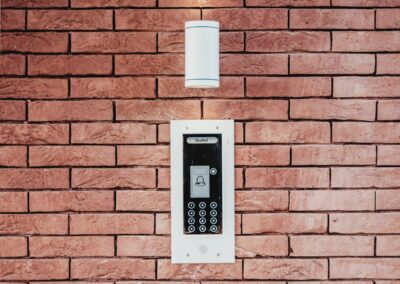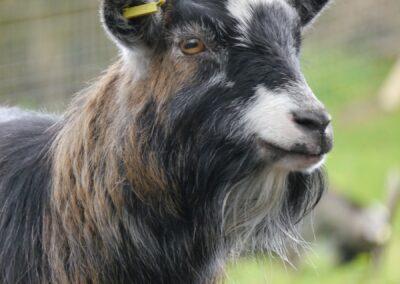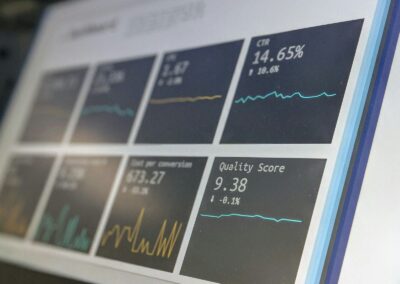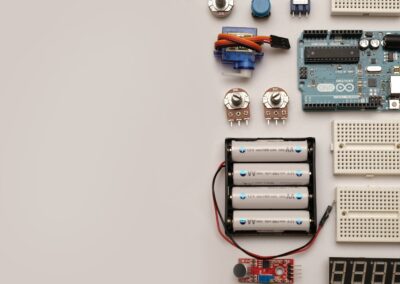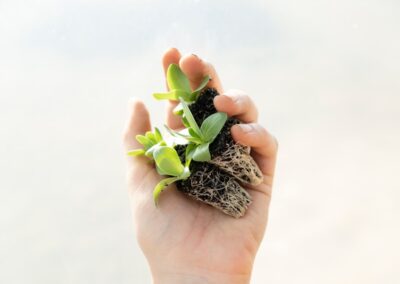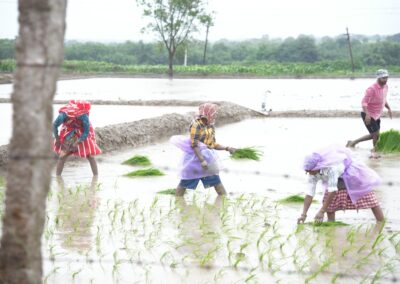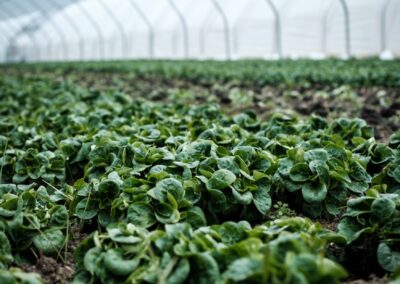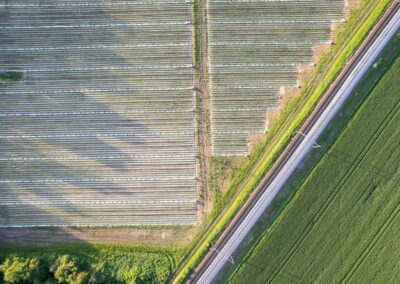The Role of IoT in Modernizing Agriculture
IoT in Adaptive Farming Systems: Transforming Agriculture
IoT in adaptive farming systems is revolutionizing the agricultural landscape, allowing farmers to adjust to changing conditions in real time and optimize their operations. In countries like Saudi Arabia and the UAE, where agriculture must contend with harsh environmental factors, the implementation of IoT technology has become a critical factor in enhancing farming efficiency and productivity. By utilizing IoT-enabled devices and sensors, farmers can collect and analyze data that informs them of the best practices for irrigation, soil management, and crop monitoring, thereby improving overall yields and reducing waste.
The integration of IoT in agriculture allows for the development of adaptive systems that respond dynamically to environmental changes. For instance, sensors placed in the soil can monitor moisture levels and trigger automated irrigation systems only when necessary, ensuring that water is used efficiently—a crucial consideration in arid regions like Riyadh and Dubai. Similarly, IoT technology can monitor weather patterns, predict pest outbreaks, and recommend timely interventions, enabling farmers to protect their crops proactively rather than reactively. This adaptability not only conserves resources but also enhances the resilience of farming systems to climate variability and other unforeseen challenges.
Moreover, the role of IoT in adaptive farming systems extends beyond just crop management. It also encompasses livestock management, where IoT-enabled devices can monitor the health and behavior of animals, ensuring timely interventions when anomalies are detected. In the UAE, where livestock farming plays a significant role, IoT technology is helping farmers maintain animal health and productivity by providing real-time insights into feeding patterns, disease outbreaks, and environmental conditions. This holistic approach to farming, supported by IoT, is driving the shift towards more sustainable and responsive agricultural practices in the region.
Responsive Farming: Adjusting to Changing Conditions with IoT
The integration of IoT in adaptive farming systems is particularly beneficial in regions where agricultural conditions can be unpredictable and challenging. In Saudi Arabia, for example, where extreme heat and water scarcity are significant concerns, IoT technology is helping farmers make informed decisions that enhance the sustainability of their operations. By utilizing IoT sensors and devices, farmers can gather real-time data on soil conditions, weather forecasts, and crop health, allowing them to adapt their practices to the changing environment.
Responsive farming systems, enabled by IoT, allow for continuous monitoring and adjustment of agricultural practices. This level of responsiveness is crucial in ensuring that crops receive the right amount of water, nutrients, and care at the right time, even as conditions fluctuate. In Riyadh, where modern agriculture is increasingly reliant on technology, IoT is enabling farmers to implement precision farming techniques that minimize waste and maximize efficiency. For example, by using IoT-driven data analytics, farmers can identify the optimal planting times, irrigation schedules, and fertilization strategies, leading to higher yields and more resilient crops.
In Dubai, where urban farming and high-tech agriculture are on the rise, IoT plays a vital role in enabling vertical farms and other innovative farming methods to thrive. IoT systems monitor environmental factors such as light, humidity, and temperature, ensuring that crops grown in controlled environments receive the ideal conditions for growth. This adaptability is essential for the success of urban agriculture initiatives, which must overcome the challenges of limited space and resources. By integrating IoT into these systems, farmers in Dubai can achieve high levels of productivity while maintaining sustainability and reducing their environmental footprint.
Advancing Agricultural Efficiency Through IoT
IoT in Precision Agriculture: A Path to Sustainable Farming
The implementation of IoT in adaptive farming systems is not only transforming how agriculture is practiced but also paving the way for more sustainable and efficient farming methods. Precision agriculture, which relies heavily on IoT technology, allows farmers to apply inputs such as water, fertilizers, and pesticides in precise amounts, reducing waste and environmental impact. In Saudi Arabia, where the conservation of resources is a top priority, IoT-driven precision farming is becoming an essential tool for farmers seeking to optimize their use of scarce resources.
IoT sensors and devices collect vast amounts of data on crop health, soil conditions, and weather patterns, which are then analyzed to guide decision-making. This data-driven approach ensures that farming practices are tailored to the specific needs of each crop and field, leading to more efficient use of inputs and higher yields. In the UAE, where agricultural technology is rapidly advancing, IoT is enabling farmers to achieve greater control over their operations, resulting in more consistent and reliable food production.
Furthermore, the role of IoT in precision agriculture extends to reducing the environmental impact of farming. By minimizing the overuse of fertilizers and pesticides, IoT technology helps prevent soil degradation and water contamination, promoting more sustainable farming practices. In regions like Riyadh and Dubai, where environmental conservation is a growing concern, IoT-enabled precision agriculture is seen as a key solution for balancing the demands of food production with the need to protect natural resources.
Conclusion: The Future of Farming with IoT
The future of agriculture in Saudi Arabia, the UAE, and beyond is being shaped by the integration of IoT in adaptive farming systems. This technology is not only improving the efficiency and productivity of farming operations but also enabling farmers to adapt to the challenges posed by climate change and resource scarcity. As IoT continues to evolve, its role in agriculture will only grow, offering new opportunities for innovation and sustainability in farming.
For business executives, mid-level managers, and entrepreneurs in the agricultural sector, investing in IoT technology is essential for staying competitive in an increasingly tech-driven industry. By leveraging IoT-enabled monitoring and data analytics, farmers can achieve higher yields, reduce costs, and contribute to the development of a more sustainable and resilient agricultural system. In conclusion, IoT is not just a tool for modernizing agriculture—it is a catalyst for transforming the way we grow food and manage natural resources in a rapidly changing world.
—
#IoTInAgriculture #SmartFarming #PrecisionAgriculture #SustainableFarming #SaudiAgriculture #UAEFarmingTechnology #RiyadhSmartFarming #DubaiAgricultureInnovation #ModernFarmingTechniques #IoTMonitoring










